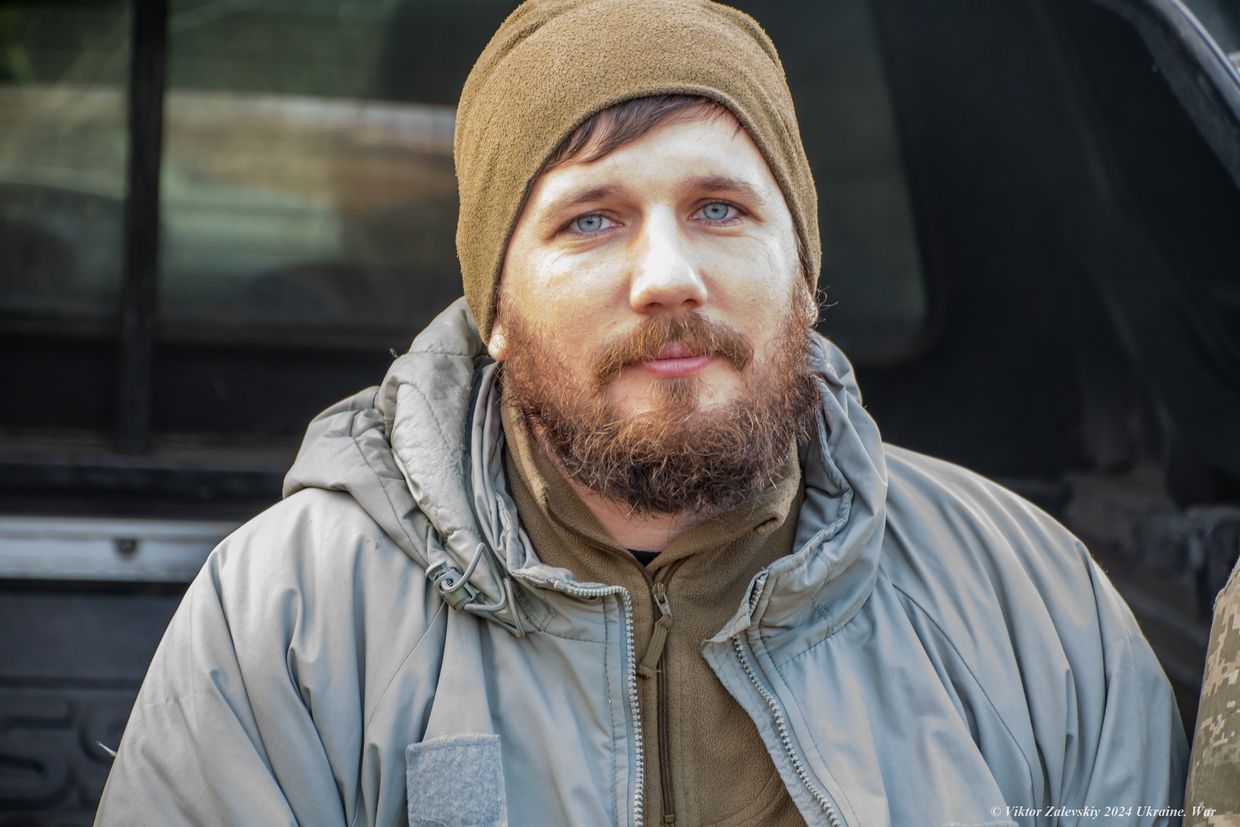Fallen activist Roman Ratushnyi and his battle for a better Ukraine
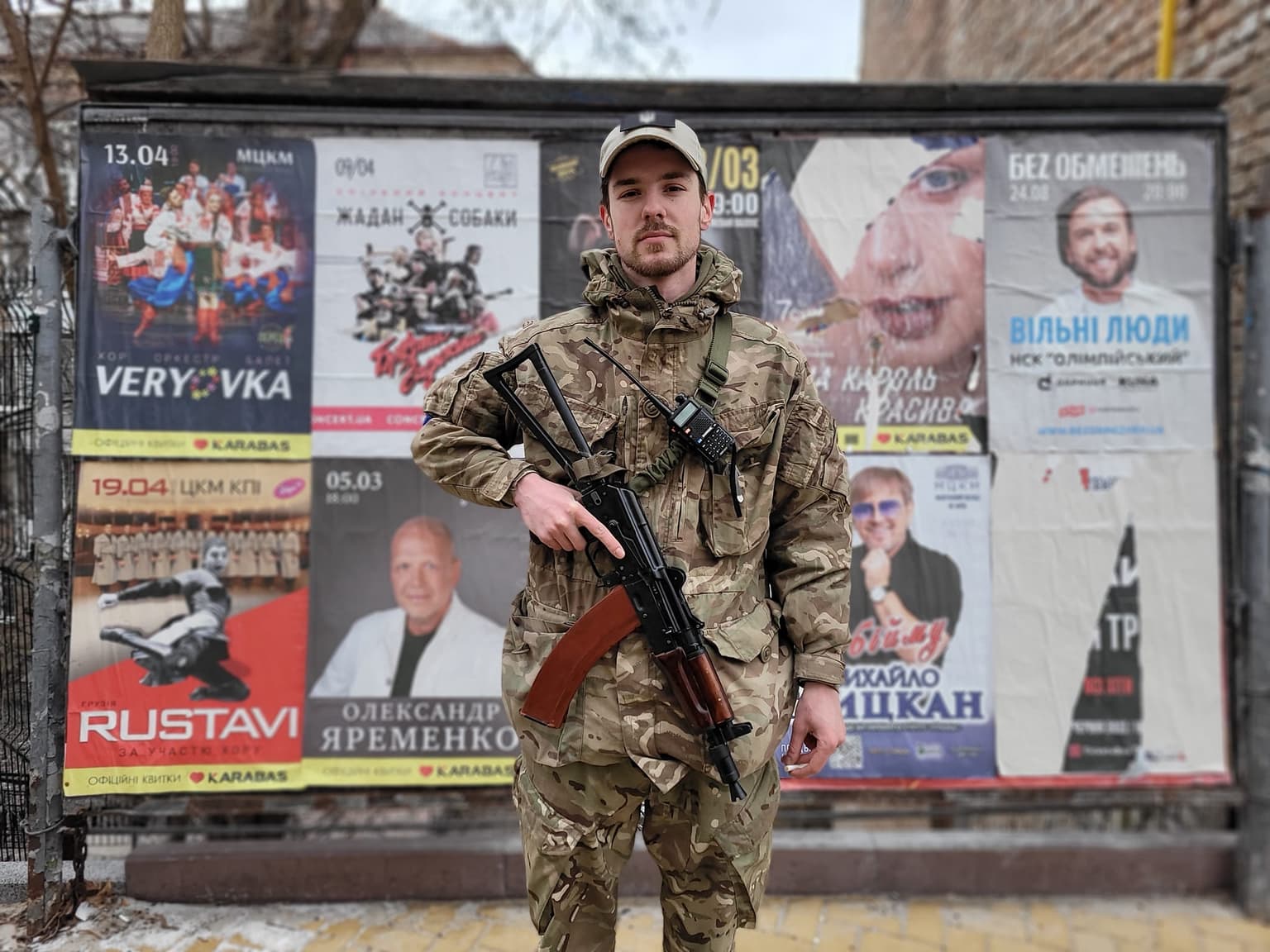
Roman Ratushnyi was one of the most prominent Kyiv activists. He was killed in combat near Izium, Kharkiv Oblast, on June 9. He was 24 years old. (Bohdan Kutiepov)
A crowd of dozens gathered near the highway in Kyiv’s historic Protasiv Yar neighborhood on June 16.
Many of them knew each other well, united by past rallies against illegal construction in the area. But they were sadly quiet that day, hugging one another occasionally, and wiping off their tears.
As they saw several cars approaching, they kneeled and lighted flares.
There, in one of those cars, was the body of a young Ukrainian activist who had once inspired and united these people and many others to fight for justice.
The cars drove by the freshly-painted mural in Protasiv Yar, reading: “Roman Ratushnyi. Heroes do not die.”
One of the most prominent Kyiv activists, Ratushnyi had been fighting for a better Ukraine since he was 16 years old, first during the EuroMaidan Revolution, then supporting Ukrainian soldiers during Russia’s eight-year-long war in Donbas, and later going into civic activism.
He stood up to Ukrainian oligarchs and corrupt officials as a leader of the non-profit "Let’s Protect Protasiv Yar,” which fought against illegal construction in the Kyiv park.
"He was a leader and a patriot who drove change and inspired others," says one of the non-profit’s activists, Oleg Nikiforov.
When Russia began its all-out invasion of Ukraine on Feb. 24, Ratushnyi’s friends and loved ones weren’t surprised by his decision to fight for the freedom of his homeland.
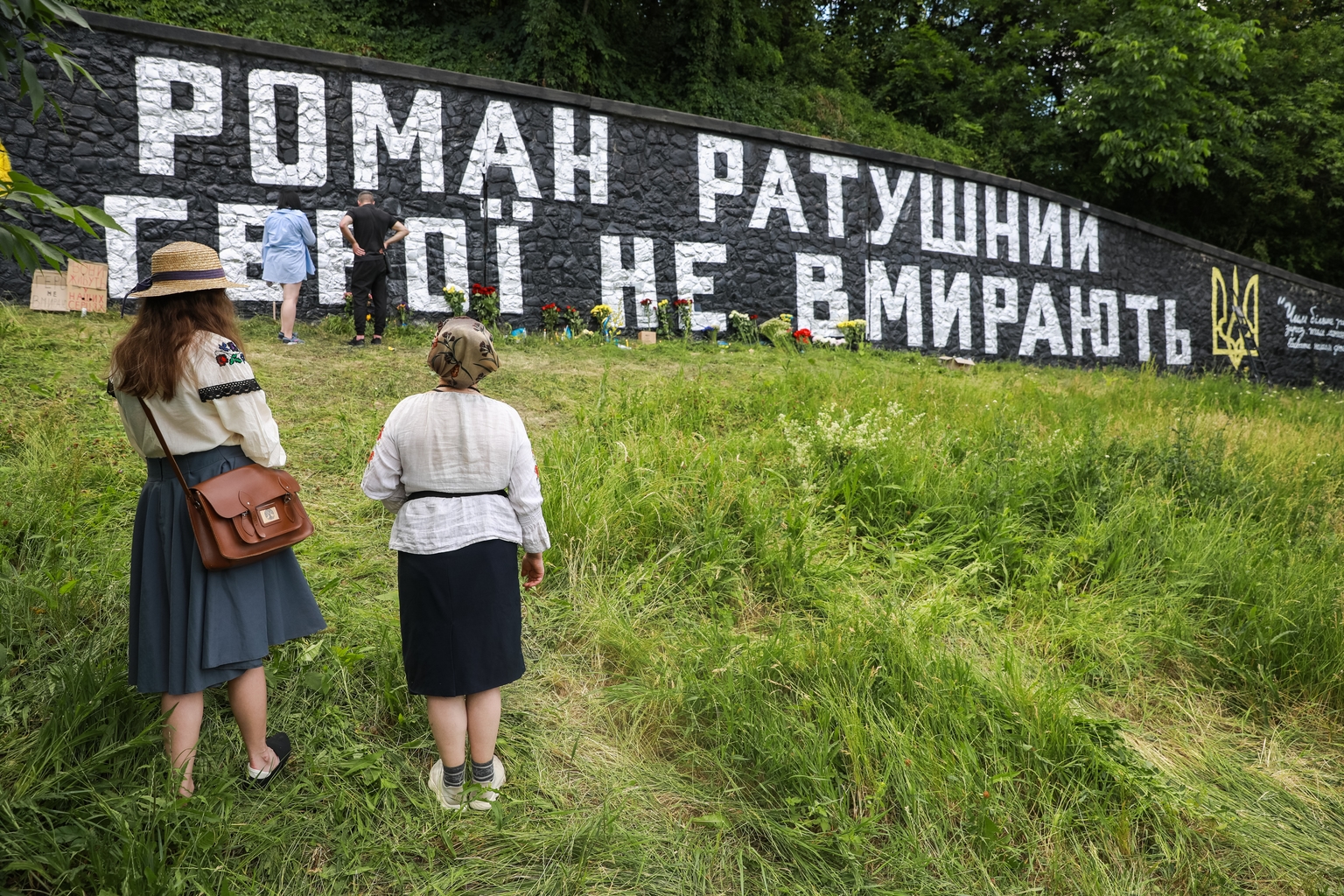
He joined a local territorial defense unit to protect his native neighborhood, Protasiv Yar – the same area that he used to protect from illegal construction by organizing protests.
Soon, Ratushnyi joined the Ukrainian Armed Forces. He had been fighting the Russian troops in Sumy Oblast and then at the site of heavy hostilities near Kharkiv.
There, his very last battle for Ukraine took place.
Roman was killed near Izium, Kharkiv Oblast, on June 9. He was 24 years old.
Although 60-100 Ukrainian soldiers are killed every day according to President Volodymyr Zelensky, this loss reverberated through Kyiv especially strongly.
Ratushnyi had done a lot for Kyiv, but could have done so much more, his friends say.
“He was a great man who sympathized with everyone fighting for freedom, and hated every evil in the world,” says Artur Kharytonov, activist and Ratushnyi’s close friend.
“People like Roman are born once in a 1,000 years,” says Nikiforov.
Becoming an activist
Ratushnyi was an inspiration for those who knew him personally and even to those who didn’t.
Born into a family of Kyiv activist Taras Ratushnyi and journalist and writer Svitlana Povalyaeva, Roman seemed to have little chance of not becoming civic-minded.
When downtown Kyiv was ablaze with massive protests against then-President Viktor Yanukovych during one of the most crucial events in Ukraine’s history, the EuroMaidan Revolution, Roman was just 16 years old, studying at one of Kyiv’s schools.
That, however, didn’t stop him from becoming an active participant in the revolution.
“He was there from day one,” Kharytonov says.
On Nov. 30, 2013, the day that catalyzed the popular uprising, Ratushnyi was among a large group of Ukrainian students violently attacked and beaten by the Berkut riot police.
It was back then that his thirst for justice would become stronger than the fear for his own life: Despite injuries and increasing danger, Ratushnyi participated in the protests up until Yanukovych was toppled in February 2014.
“For me, it was not in vain because I see a huge number of positive changes in the country that occurred due to the Maidan,” Ratushnyi said in an interview back in 2018.
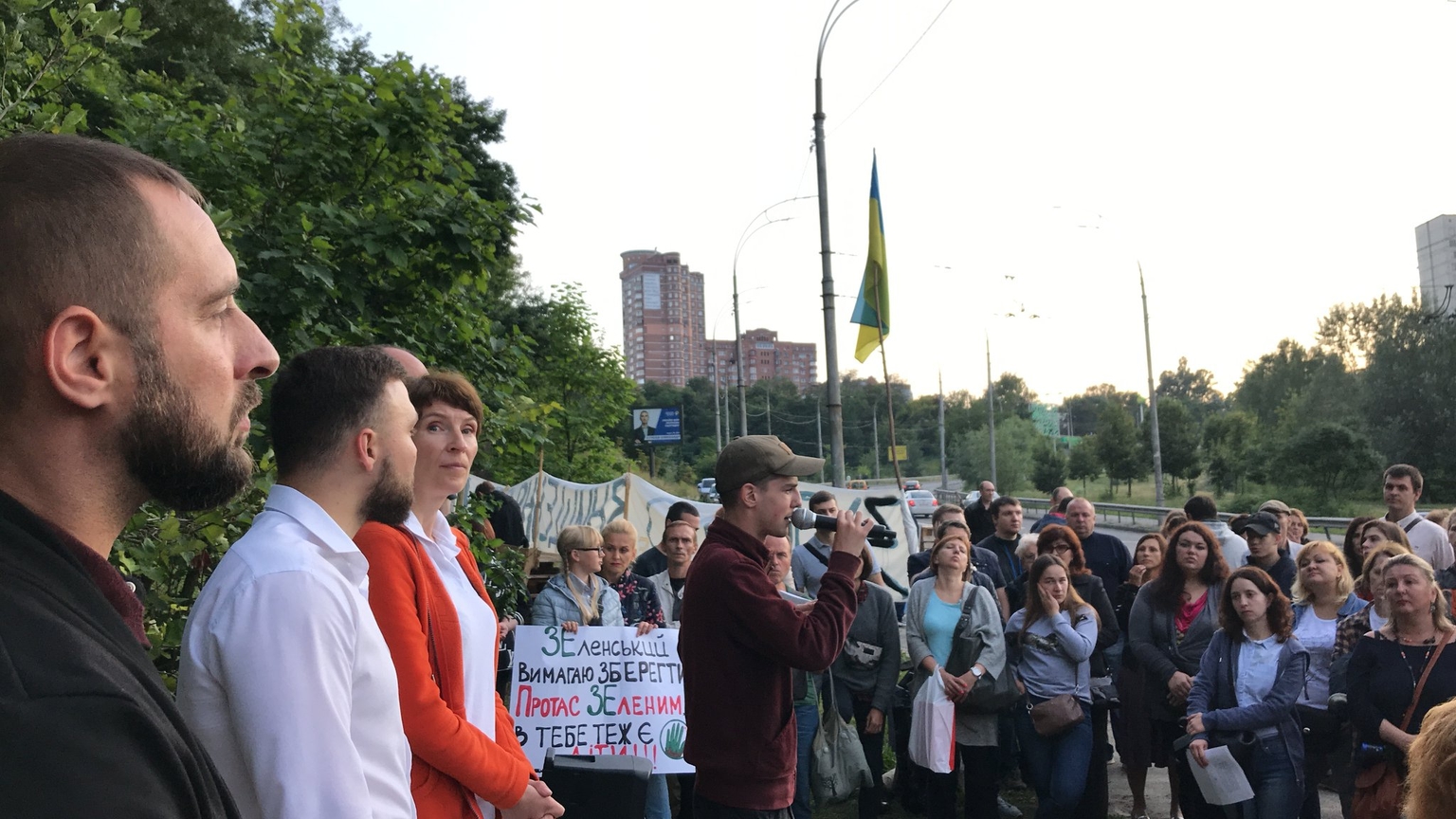
“Without Maidan, without showing real resistance to the authorities, these changes would not have happened,” Ratushnyi said.
Just like it changed the mindsets of many Ukrainians, boosting pro-European and patriotic values, the EuroMaidan Revolution changed Ratushnyi as well.
After the revolution, Ratushnyi said he started feeling like an “absolutely free person” in his country. He would later help in identifying some of the Berkut officers and bringing them to justice.
“It was like a very logical way for his becoming, and for our generation as well,” says Roman’s friend, architect Ulyana Dzhurlyak.
So when several years after the uprising, a fence appeared near his home in Protasiv Yar, marking yet another illegal construction site in the capital, Ratushnyi, in his early 20s, stood up.
Keep on fighting despite threats
If it wasn't for Ratushnyi, the 20 hectares of Protasiv Yar’s sloping woodland not far from Kyiv’s downtown would have disappeared under high-rise buildings, according to his friends and fellow activists.
“He began to fight (illegal construction) and with his example showed everyone else what to do,” says Nikiforov, Ratushnyi’s friend.
Ratushnyi led a group of protesters and later a non-profit in 2019, when a company linked to controversial former Ukrainian official and businessman Hennadiy Korban attempted to illegally construct three 40-story buildings at the site of the natural park.
United by Ratushnyi, the group of activists tried to bring the issue into the public eye by holding multiple protests both in the area and near governmental buildings — some of which even ended in clashes with the police and “titushki” (thugs) — as well as educating locals on illegal construction and “fighting the mafia” by holding lectures and movie screenings.
Along with publicity, Ratushnyi said he started getting threats from Korban and his allies.
“They wrote to him directly that ‘if you can't be bribed, if we can't solve the issue with you, it's easier to kill you’,” Nikiforov recalls.
In August 2019, Ratushnyi met with Korban’s then-lawyer Andriy Smyrnov, who tried to persuade Ratushnyi not to oppose the project. Nikiforov says he also offered Ratushnyi money, which he refused.
A month after their conversation, Smyrnov was appointed deputy chief of staff for then-newly elected President Volodymyr Zelensky.
Even though Roman later published an audio recording of their conversation, both Smyrnov and Korban denied threatening the activist.
In one of his recent interviews, Ratushnyi said that he even met with Zelensky personally, who responded to his complaining about the threats by saying that "it was before" Smyrnov took a job in the president’s office. Smyrnov took the job in September 2019, one month after the alleged threat.
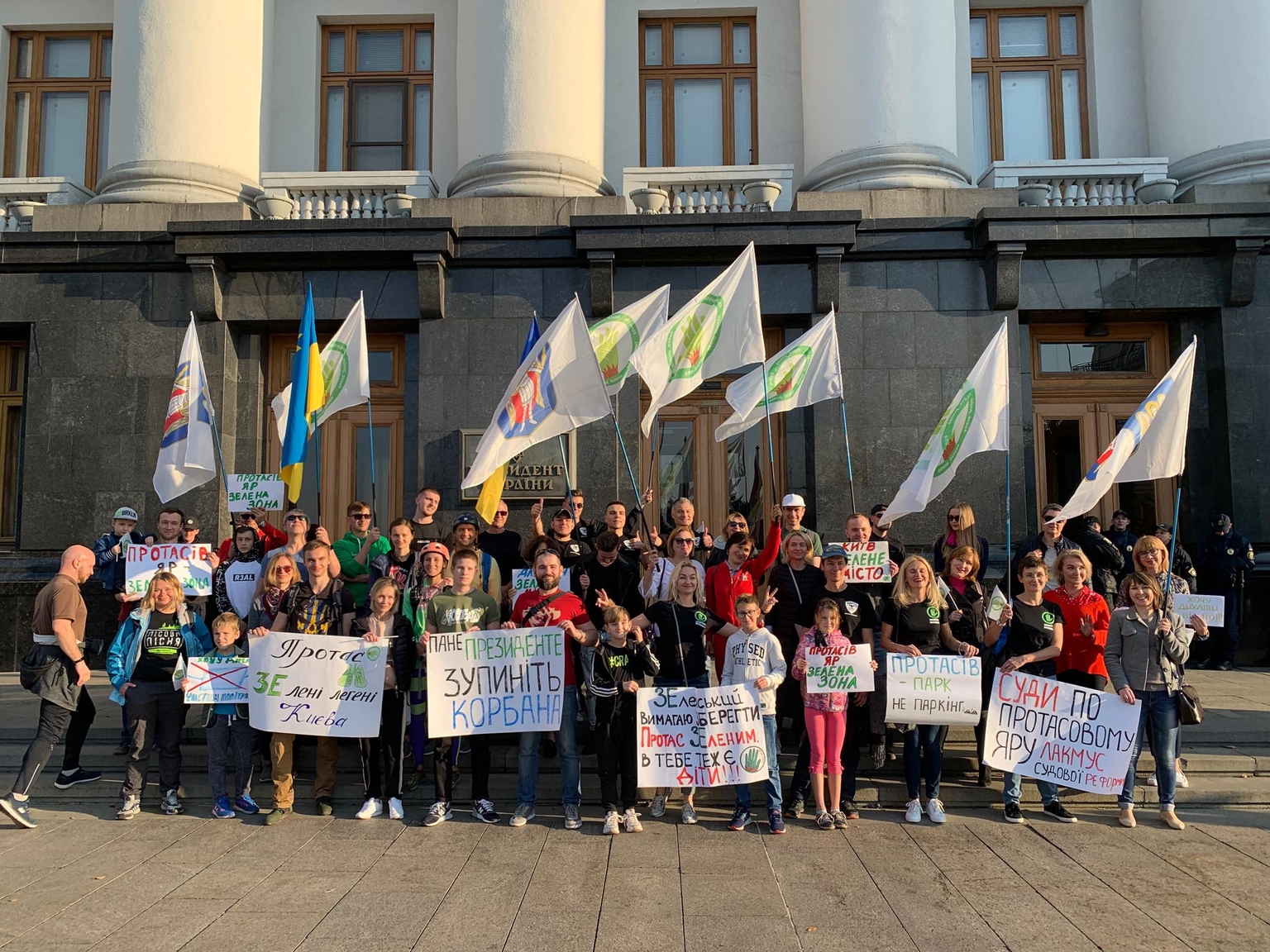
Back then, Nikiforov says, they started to notice some people following Roman. For more than a month, Ratushnyi had to go into hiding, saying that he had received threats to his life.
“But Roma was one of those people who kept fighting no matter what,” says Nikiforov. “Fighting against corrupt officials, systems, and governments, to rebuild his country.”
So he persisted. Not only did he fight for Protasiv Yar, but he supported other activists and initiatives as well.
In March 2021, Ratushnyi was even arrested for what he claimed were trumped-up charges of vandalizing the president’s office during a protest demanding the release of then-jailed civic activist Serhiy Sternenko. Nikiforov says it was an attempt to “get rid of Roman.”
But it failed: Thanks to public outcry, Ratushnyi was released from house arrest in April. Following an almost three-year battle with multiple court hearings and protests, Ukraine’s supreme court ruled against the developers in early 2022.
Nikiforov recalls Roman saying that even the victory was not a reason to stop: “One needs to keep on going, to keep on fighting.” And their non-profit plans to follow Ratushnyi’s advice.
“We want Roman to be awarded the Hero of Ukraine title, and for the park to be named after him,” Nikiforov says.
The final battle
A bright-minded and excellent strategist, Ratushnyi had no doubt Russia would once again try to wipe out Ukrainian “national identity.” He was determined to do everything he could to not let it succeed.
“There was no doubt he would go straight to hell (to fight),” says his friend Yevhen Cherepnia.
“Burn all of the Russian subcultures within you…” Roman would later say. “... Otherwise they will burn you.”
He assembled and headed a volunteer territorial defense unit "Protasiv Yar," shortly after the full-scale invasion started on Feb. 24. Nearly a month into the war, after “gaining some combat experience” in settlements in Kyiv Oblast, Ratushnyi and Cherepnia decided to join the 93rd Mechanized Kholodnyi Yar Brigade of the Ukrainian Ground Forces.
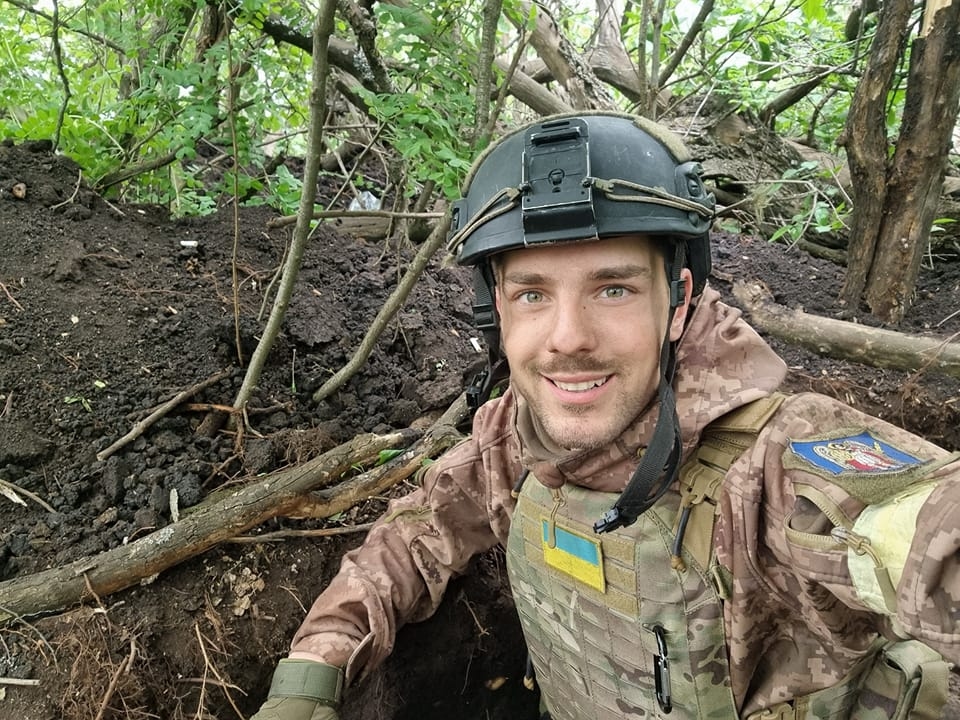
They started by liberating settlements in Sumy Oblast, including the town of Trostyanets, and soon headed directly to the site of severe hostilities in Kharkiv Oblast. Roman was distributed to the battalion’s special reconnaissance unit.
“Which means being within meters from the enemy,” Cherepnia says.
Besides fighting Russian troops, Ratushnyi had also been collecting equipment and everything needed for his battalion.
“As a soldier, he had the same virtues as a civilian,” Cherepnia says. “The same fearlessness and determination.”
For the last time, Ratushnyi traveled back home in late May. Kharytonov says he did not want many people to know he was in Kyiv and had a lot to do, just as usual. But something about him had changed, Kharytonov recalls.
“He wanted to return to that hell on the frontline badly,” Kharytonov says. “Though I felt that it was difficult for him as well.”
Saying goodbye, they took a photograph together, and Ratushny left to keep doing what he did the best — fighting for Ukraine. Kharytonov could not abandon the thought that it might be their last photograph together.
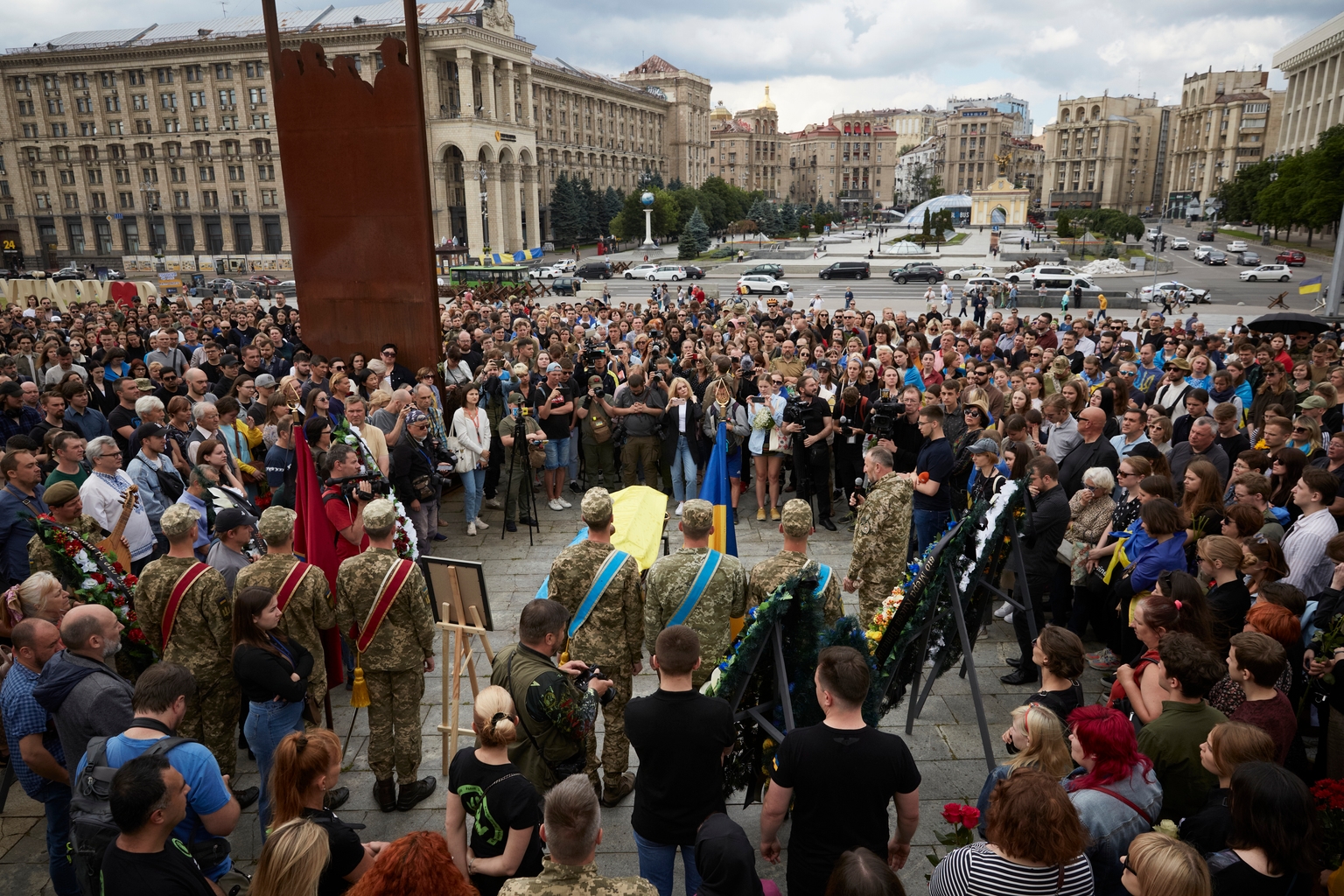
Unfortunately, he was not wrong. On June 14, Ratushnyi's brigade confirmed the terrifying rumors of his death.
“Ambushed by the enemy,” Roman died in combat near Izium, says Cherepnia. One week after that, Ratushnyi’s body was finally delivered to his native Kyiv, to his beloved Protasiv Yar.
“I want Ukraine to remember him as an example of a new generation,” says Cherepnia. “Those who stand for their ideas not in words but actions.”
“Our hope,” people would write on social media after Roman’s sudden death. “He was the best of us…”
“He would not like it,” says Kharytonov. “He was very talented but also very humble.”
And yet he “personified the war in Ukraine,” according to Kharytonov.
It now seems that even after his death, Ratushnyi continues fighting for a better future for Ukraine: His mother has asked everyone willing to “honor the memory” of her son to support Ukrainian cultural and educational facilities like the Taras Shevchenko National Museum, Historical Truth, and Novynarnia media outlets, along with National Honored Bandura Band of Ukraine.
She has already donated Hr 100,000 to the Historical Truth and Hr 50,000 to "Your Underground Humanitarian" educational initiative.
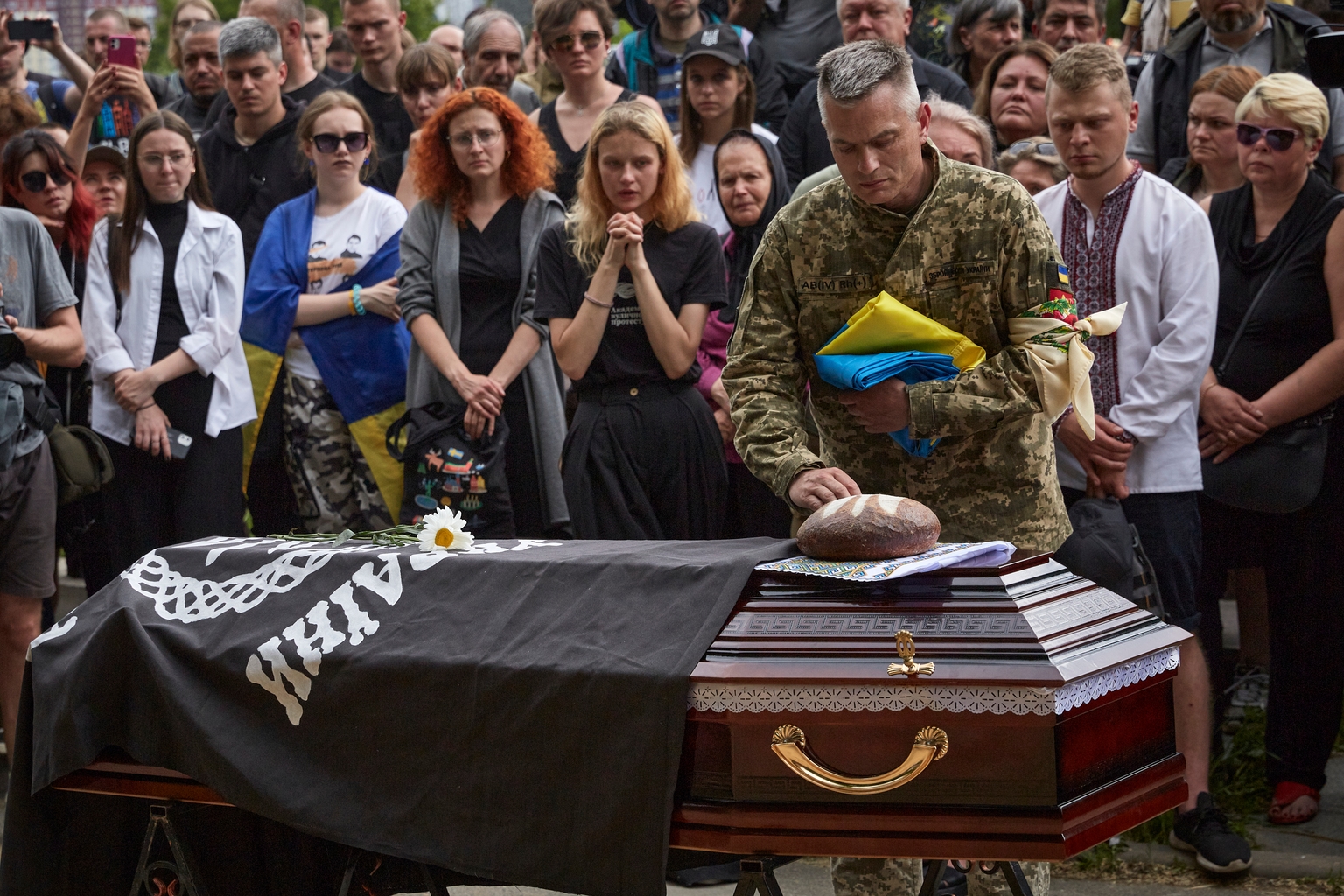
Soon, Ratushnyi’s name will be inscribed on the map of Kyiv: Volhohradska Street near Protasiv Yar is set to be renamed after the activist.
"You didn't build a house, but you formed a community,” said Roman’s father as he stood near the coffin of his son. Ratushnyi was buried in a closed coffin.
“You didn't plant a tree, you saved the park,” he proceeded, trying to hold back tears.
“You didn't have children, but you were not left without descendants…” “There is a part of Roman Ratushnyi in every one of us.”
“Heroes do not die,” the crowd could be heard saying in unison throughout the ceremony.

